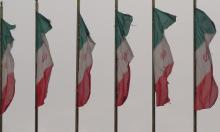Peru to urge Japan on former President's extradition
Fujimori & Montesinos: a story of corruption and human rights violations
Peruvian General Procurator, Mauricio Mulder Bedoya said that his Government should sue the Japanese Government before the International Courts for protecting former President Alberto Fujimori. The former Head of State is accused of human rights violations and corruption in his country but managed to escape to Tokio, where obtained Japanese citizenship.
"Unless Peru takes the case to The Hague, will never obtain Japan's agree on Fujimori's extradition because the Asian country considers him as one of its citizens and do not extradite them", said Bedoya to the local press. Therefore, current Government's strategy would surely fail if radical measures were not adopted.
"This Government is afraid of taking Japan to the courts", explained Bedoya. "However, International Courts should state which nationality prevails, and surely will be the Peruvian one as he was President of Peru", added the Procurator.
However, the main problem Peruvians procurators face is the lack of proofs against Fujimori, collected during the last two years. "It is very strange that Procurators have found many proofs against Vladimiro Montesinos and there are quite a few against Fujimori", said Anibal Torres Vazquez, leader of the national lawyers association. Vladimiro Illych Montesinos, named after Lenin, is not only the former de facto chief of the Peruvian intelligence, Servicio de Inteligencia Nacional (SIN), he was the adviser and, together with the military, the most important power base of President Alberto Fujimori. He was born 56 years ago in Arequipa. He grew up in a bourgeois family, but his parents were communists and therefore named their son after Lenin.
In 1990, as Fujimori rose to power, Montesinos became the president's adviser and mediator in his relations with the SIN and the army. Under the presidency of Fujimori, Montesinos continuously enlarged the SIN's importance and shifted people of confidence into key positions. Especially after Fujimori's "selfcoup" in 1992, allegedly inspired by Montesinos, the SIN became, like the military, a state within the state.
Montesinos is considered the architect of the successful war of the army against the Maoist movement of the Sendero Luminoso (Shining Path). But he also collected compromising material on parliament members, journalists and other members of the opposition (and also on Fujimori's followers). He manipulated people, elections and media and, for his fight against the drug lords, he was for years in close contact with the CIA. In early September 2000, a video film shown on television showed Montesinos bribing an oppositional Member of Parliament. This meant the sudden end of his career. Even Fujimori, who had protected Montesinos for years against all accusations and allegations, "suspended" his advisor.
Apart from the corruption charges, Human Rights Watch is also after Fujimori for extrajudicial executions, torture and intimidation occurred frequently and systematically covered up. Montesinos was sent to prison, while Fujimori fled to Japan, where Government still protects him.
Hernan Etchaleco PRAVDA.Ru Argentina
Photo: Montesinos (left) and Fujimori (right) as seen by Peruvians
Subscribe to Pravda.Ru Telegram channel, Facebook, RSS!




